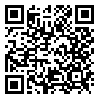1. Afrouz GA. Psychology and rehabilitation of children in slow-paced. Tehran: Tehran University;2014. [Persian]
2. Esdaile SA, Greenwood KM. A comparison of mothers' and fathers' experience of parenting stress and attributions for parent-child interaction outcomes. Occupational Therapy International. 2003;10:115-26. [
DOI:10.1002/oti.180]
3. Baker BL, Blacher J, Crnic KA, et al. Behavior problems and parenting stress in families of three-year-old children with and without developmental delays. American Journal on Mental Retardation. 2002;107:433-44. [
DOI:10.1352/0895-8017(2002)1072.0.CO;2]
4. Abbeduto L, Seltzer MM, Shattuck P, et al. Psychological well-being and coping in mothers of youths with autism, down syndrome, orfragile X syndrome. American Journal on Mental Retardation. 2004;109:237-54. [
DOI:10.1352/0895-8017(2004)1092.0.CO;2]
5. Narimani M, Aghamohammadian HR, Rajabi S. Maternal mental health and mental health than mothers of normal children of exceptional children. Journal of Mental Health. 2007;33(34):15-24. [Persian]
6. Gupta A, Singhal N. Positive perceptions in parents of children with disabilities. Asia Pacific Disability Rehabilitation Journal. 2004;15:22-35.
7. DiniTurki N, Bahrami H, Davrmnsh A, Biglarian A. The relationship between stress and marital satisfaction among parents of mentally retarded children. Archives of Rehabilitation. 2008;7(4):41-6. [Persian] [
http://rehabilitationj.uswr.ac.ir/article-1-23-fa.html]
8. Phillips EL. Resilience, mental flexibility and cortisol response to the Montreal Imaging Stress Task in unemployed men [Thesis of PhD]. Michigan: The University of Michigan; 2011.
9. Garmezy N, Masten AS. The protective role of competence indicators in children at risk. In Cummings EM, Green AL, Karraki KH (Eds), Lifespandevelopmental psychology: Perspectives on stress and coping. Hillsdale, NJ. 1991;151-74.
10. Kordich-Hall D, Pearson J. Resilience-giving children the skills to bounce back Education and Health. 2005;23(1):12-5.
11. Steensma H, Heijer MD, Stallen V. Research note: effects of resilience training on the reduction of stress and depression among Dutch workers. International Quarterly of Community Health Education. 2007;27:145-59. [
DOI:10.2190/IQ.27.2.e]
12. Steinhardt M, Dolbier C. Evaluation of a resilience intervention to enhance coping strategies and protective factors and decrease symptomatology. Journal of American college health. 2008;56:445-53. [
DOI:10.3200/JACH.56.44.445-454]
13. Kaveh M. Plans to increase resilience to stress and the impact of education on quality of life for parents with children with mild mental retardation [Thesis of PhD]. Tehran: Faculty of Psychology and Educational Sciences, Allameh Tabatabai; 2009.
14. Segal ZV, Williams JMG, Teasdale JD. Mindfulness based cognitive therapy for depression: A new approach to preventing relapse. New York: Guilford press. 2002;121-45.
15. Crane R. Mindfulness-based cognitive Therapy. New York: Rout ledge. 2009;167-80. [
DOI:10.4324/9780203882344]
16. Zeidan F, Jounson SK, Gordon NS, Goolkasian. Effects of brief and sham mindfulness meditationon mood and cardiovascular variable. J AlternComplement Med. 2010;16(8):867-73. [
DOI:10.1089/acm.2009.0321]
17. Flugel Colle KF, Cha SS, Loehrer L, Bauer BA. Wahner-Roedler DL. Measurement of quality oflife and participant experience with the mindfulness basedstress reduction program. ComplementaryTherapies inClinical Practice. 2010;16:36-40. [
DOI:10.1016/j.ctcp.2009.06.008]
18. Coholic DA. Exploring the feasibility and benefits of arts-based mindfulness-based practices with young people in need: Aiming to improve aspects of self-awareness and resilience. Child & Youth Care Forum. Vol. 40: Springer, 2011:303-17. [
DOI:10.1007/s10566-010-9139-x]
19. Meiklejohn J, Phillips C, FreedmanML, Griffin ML, BiegelG, RoachA, SaltzmanA. Integrating mindfulness training into K-12 education: Fostering the resilience of teachers and students. Mindfulness. 2012; 3(4): 291-307. [
DOI:10.1007/s12671-012-0094-5]
20. MohammadiM. Factors Affecting the resilience of people exposed the risk of drug abuse [thesis of PhD]. Tehran: University of Social Welfare and Rehabilitation; 2005.
21. Wells A. Metacognitive Therapy for Anxiety and Depression The Guilford Press. NewYork, NY. 2009.
22. Semple RJ, Lee J, Rosa D, et al. A randomized trial of mindfulness-based cognitive therapy for children: Promoting mindful attention to enhance social-emotional resiliency in children. Journal of child and family studies. 2010;19:218-29. [
DOI:10.1007/s10826-009-9301-y]
23. Chaplain ZJ. A cognitive path through resiliency: New York: Hyperion, 2010.
24. Besharat MA, Abbaspour dopolani T. The relationship between metacognitive strategies and creativity and resiliency in students. Quarterly Journal of Social Psychology (New Findings in Psychology). 2011;5(14):109-22.
25. Narayanan A. The resilient individual: A personality analysis. Journal of the Indian Academy of Applied Psychology. 2008;34(Special Issue):110-8.
26. Kabat-Zinn J. Coming to our senses: Healing ourselves and the world through mindfulness: Hachette UK; 2005.
27. Isen AM. Positive affect, systematic cognitive processing, and behavior: Toward integration of affect, cognition, and motivation. Multi-level issues in organizational behavior and strategy. 2003:55-62. [
DOI:10.1016/S1475-9144(03)02003-4]
28. Janeck AS, Calamari JE, Riemann BC, Heffelfinger SK. Too much thinking about thinking? metacognitive differences in obsessive-compulsive disorder. Journal of Anxiety Disorders. 2003;17(2):181-95. [
DOI:10.1016/S0887-6185(02)00198-6]
29. Momeni Kh, Alikhani M. Relationship between family function, differentiation and resilience to stress, anxiety and depression in married women in Kermanshah. Journal of Counseling and Family Therapy. 2013;3(2):297-329.

 ، محمود ملکی تبار1
، محمود ملکی تبار1 
 ، کیومرث فرح بخش1
، کیومرث فرح بخش1 
 ، علی سالاری اسکر2
، علی سالاری اسکر2 





